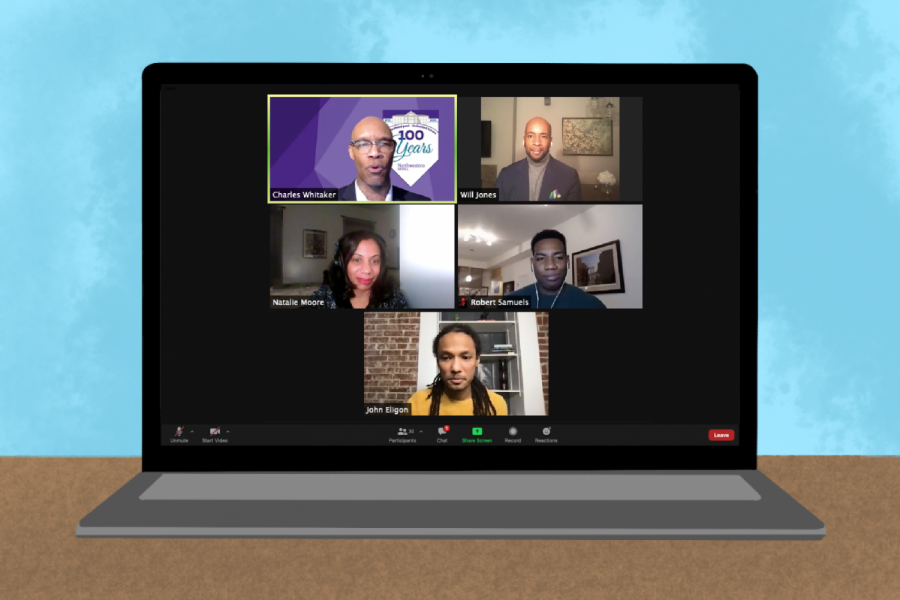Medill Black History Month panel discusses race reporting, objectivity
Dean of Medill Charles Whitaker discusses race reporting with Medill alumni John Eligon, Will Jones, Natalie Moore and Robert Samuels.
February 18, 2021
Medill alumni at various news outlets discussed their experiences as Black journalists, as well as race and identity within the media landscape, at Wednesday’s Medill Black History Month panel.
Moderated by Medill Dean Charles Whitaker, the panel included John Eligon (Medill ‘04) from the New York Times, Will Jones (Medill ‘06) from ABC 7 Chicago Eyewitness News, Natalie Moore (Medill M.S. ‘99) from WBEZ Radio in Chicago and Robert Samuels (Medill ‘06) from The Washington Post.
“There’s an international reckoning following the killing of George Floyd,” Whitaker said. “Media outlets are among the institutions doing some of the soul searching as they try to come to grips with it.”
Each reporter had different styles of pitching stories centered on race to their editors.
“I try to make sure that I have characters that speak to the universality of the human experience,” Samuels said. “It helps make things a little bit more palatable to the White editors in my office who might not necessarily see it in the same way.”
Moore said that it’s easier to pitch race-related stories on the nonprofit side than in corporate media. Ultimately, she said, having Whiteness and the White gaze centered on stories is not sustainable.
It’s possible to cover race without being a race reporter by taking a policy approach, Moore said, rather than a race approach.
The panelists discussed the complicated nature of “both-sides-ism” and what deferring to multiple viewpoints means when it comes to reporting on race and racism.
Eligon said the next generation of journalists is effectively walking the line of necessary advocacy and bias. While he does acknowledge advocacy journalism, he said he sees even his colleagues at the New York Times, like Pulitzer Prize winning Nikole Hannah-Jones who spearheaded the 1619 Project, are able to back up their viewpoints with facts and data.
“We need to pull up a mirror to this country and show you that this is the country you live in,” Eligon said.
Panelists commented on what could be done to improve race-related coverage in newsrooms nationwide. They suggested hiring Black journalists into leadership roles and hiring White journalists with experience reporting outside their communities.
Rather than hiring specific reporters, Eligon said knowing how to report on race should be “part of a literacy that we all learn.”
“I would hope that race would just be another one of those things that everyone can kind of have those tools in the toolbox,” he said.
Email: [email protected]
Twitter: @WhoIsAlexPerry
Related Stories:
— Medill panel analyzes Boston Marathon coverage
— Panelists discuss racism, significance of this year’s MLK Day


